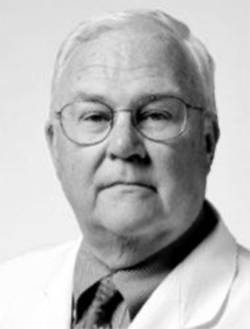Duke Flags Lowered: Former Surgery Chair Dr. Robert Anderson Dies
 Robert W. Anderson, Professor of Surgery and former Chair of the Department of Surgery, passed on October 19.
Robert W. Anderson, Professor of Surgery and former Chair of the Department of Surgery, passed on October 19.
Dr. Anderson served as chair of Duke Department of Surgery from 1994–2003. An accomplished cardiothoracic surgeon with additional training in business administration, Dr. Anderson successfully led a department that had been seeded as the epitome of traditional surgical education and training, research, and clinical excellence by his predecessor Dr. David C. Sabiston Jr. Dr. Anderson’s leadership as chair solidified Duke Surgery’s stature as a world-class institution and fortified its continued dedication to a tripartite mission of clinical, educational and investigational achievement.
Dr. Anderson’s surgical career spanned more than five decades, beginning with his surgical training at Duke University in 1967. After his residency, Dr. Anderson was appointed as Assistant Professor of Surgery at Duke. A true surgeon–scientist committed to both clinical care and investigative discovery, Dr. Anderson launched his clinical practice while also serving as Director of the CORE Cardiovascular Research Laboratory at Duke University Medical Center until 1977.
Strong leadership was the defining characteristic of Dr. Anderson’s career. He served as Chief of Cardiovascular and Thoracic Surgery at University of Minnesota Hospitals from 1979–1984, and held the same role at Evanston-Northwestern Hospital in Illinois from 1984–1986. He then served a dual-leadership role as Chair of the Department of Surgery at Evanston Hospital from 1986–1994, while concurrently serving as Chief of Cardiothoracic Surgery at Northwestern Memorial Hospital in Chicago from 1990–1994.
Prior to his surgical career, Dr. Anderson served in the military as Captain of the U.S. Army at the 3rd Surgical Hospital in Vietnam, and Director of the Trauma Research Unit at Walter Reed Army Medical Center. He received the Army Commendation Medal and Vietnam Service Medal for his service.
He will be remembered as a skilled clinician, an accomplished investigator, and a respected leader, mentor, and colleague.
Information about. memorial services will be made public when it is available.